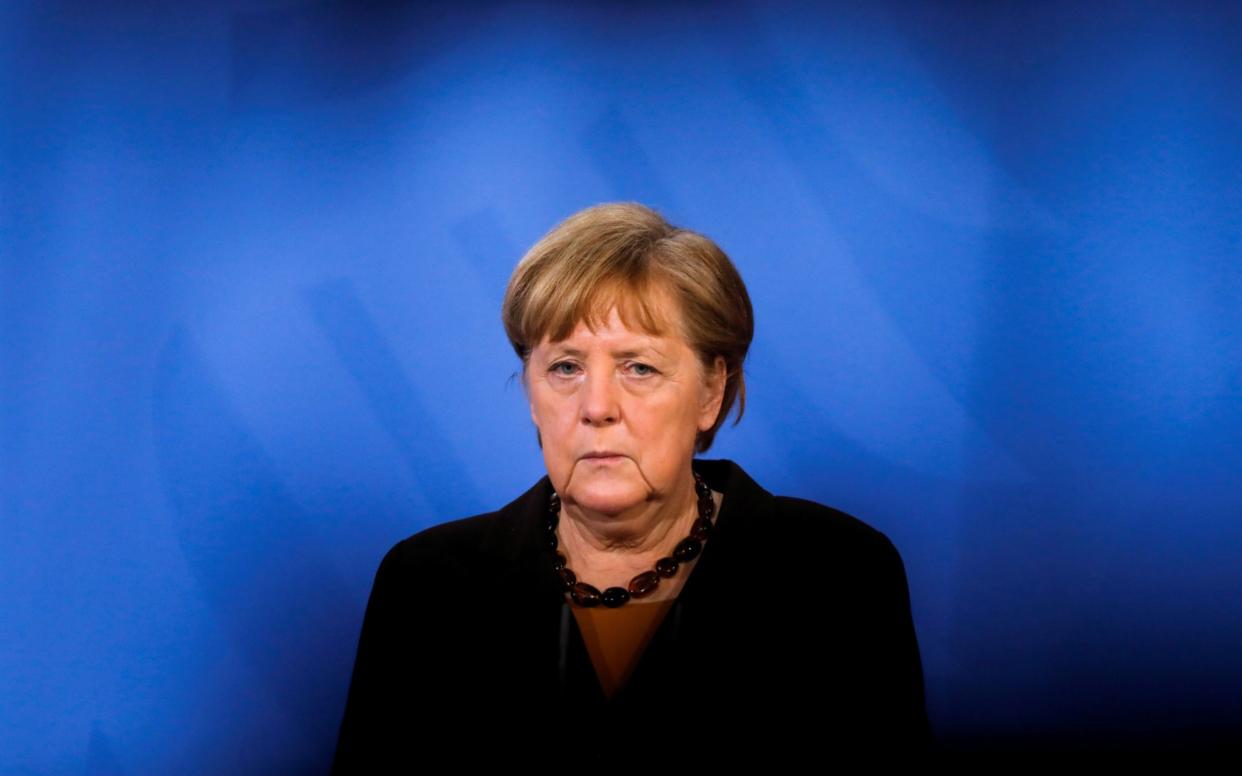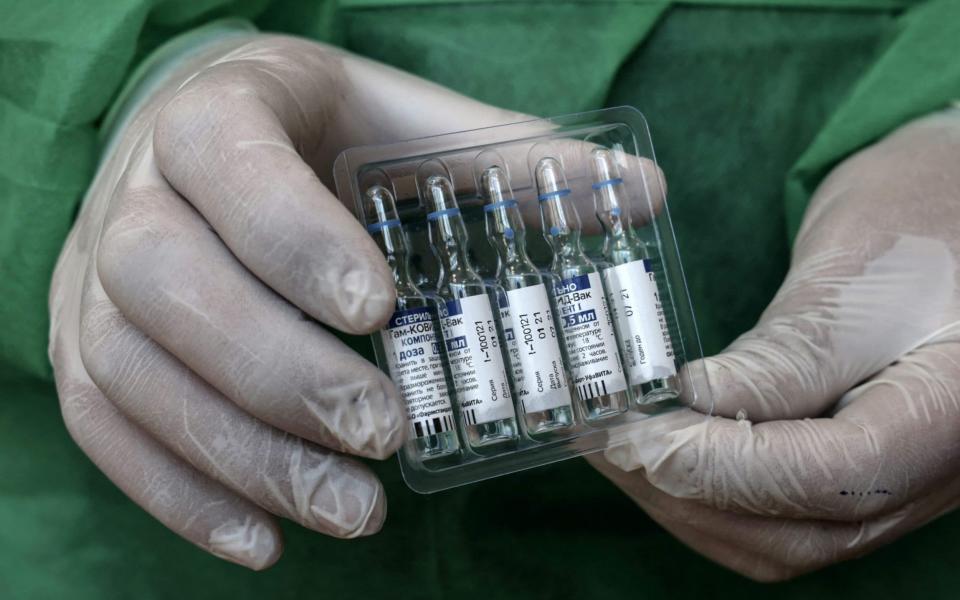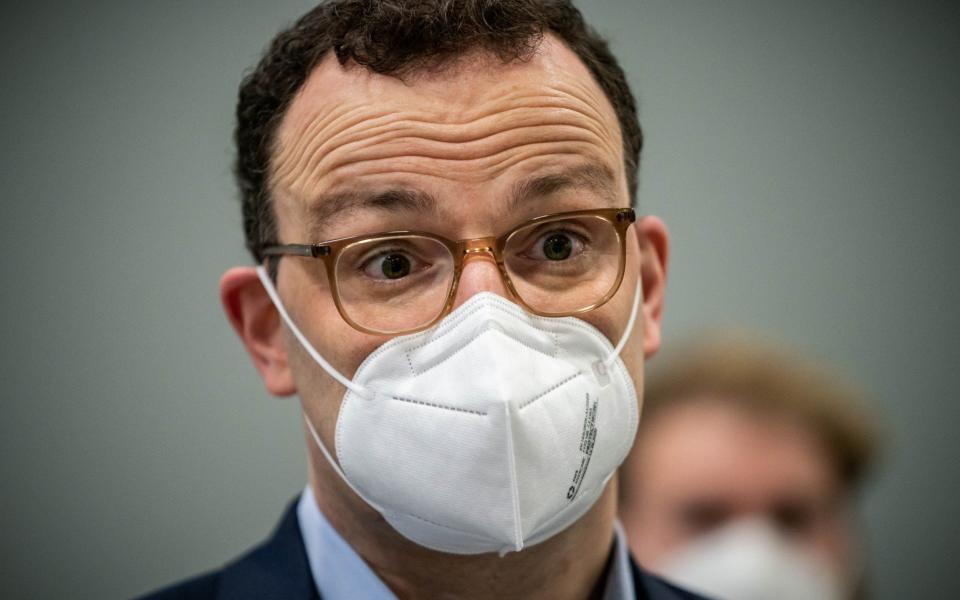German regulator advises under-60s who had AstraZeneca jab to have second dose of rival vaccine

- Oops!Something went wrong.Please try again later.
German regulators on Thursday reiterated earlier advice that under-60s who have had a first jab of the Oxford-AstraZeneca vaccine should be given a second dose of the rival Pfizer or Moderna vaccines.
The advice was issued a week ago when Germany stopped the use of the AstraZeneca vaccine in the under-60s over fears it can cause dangerous blood clots in the brain. But the German government has yet to decide whether to adopt it as policy.
The advice of the German regulator diverges from that of Britain's counterpart agency, which on Wednesday said anyone who has had a first dose of AstraZeneca should continue with it for their second.
The debate comes amid reports Angela Merkel is planning to take control of Germany’s lockdown out of the hands of regional leaders and impose national restrictions for the first time.
Germany is in the grip of a third wave and Mrs Merkel has been calling for a tougher lockdown for weeks, but under Germany’s federal system the 16 regional governments currently have the final say on restrictions.
Mrs Merkel is planning to push a new law through parliament giving her direct control, according to reports in several German newspapers.

The move is not without risk. Mrs Merkel’s coalition has a comfortable majority in parliament, but any new law could be blocked by the upper house, which is made up of delegates from the regional governments.
The threat of a new law may be an attempt to force regional leaders to agree to a tougher lockdown at talks with Mrs Merkel next Monday.
German infections have dropped sharply in recent days but government experts believe that may be down to less testing being carried out over the Easter period, and say reliable figures may not be available until Tuesday.
Meanwhile Jens Spahn, the health minister, confirmed yesterday (THU) that he is preparing to open talks with Russia on purchasing the Sputnik V vaccine for Germany.

Mr Spahn said he would open bilateral talks after the European Union ruled out negotiating a bulk order for the bloc.
But he stressed that Germany would not buy Sputnik V until it is approved by the EU’s European Medicines Agency (EMA).
“We have to be very careful this does not turn into a mirage,” said Mr Spahn. “First of all, it is about approval by the EU. Russia has to provide the data. As long as this does not happen, there can be no approval.”
Germany has been pressing Russia to hand over the necessary data to the EMA for weeks without success.
New doubt was cast on Sputnik V yesterday (THU) when the Slovakian national drug regulator said a batch of the vaccine received from Russia differed significantly from those reviewed by the EMA and the Lancet medical journal.
“The only thing these vaccines have in common is their name,” the Slovak State Insitute for Drug Control (SUKL) said.

